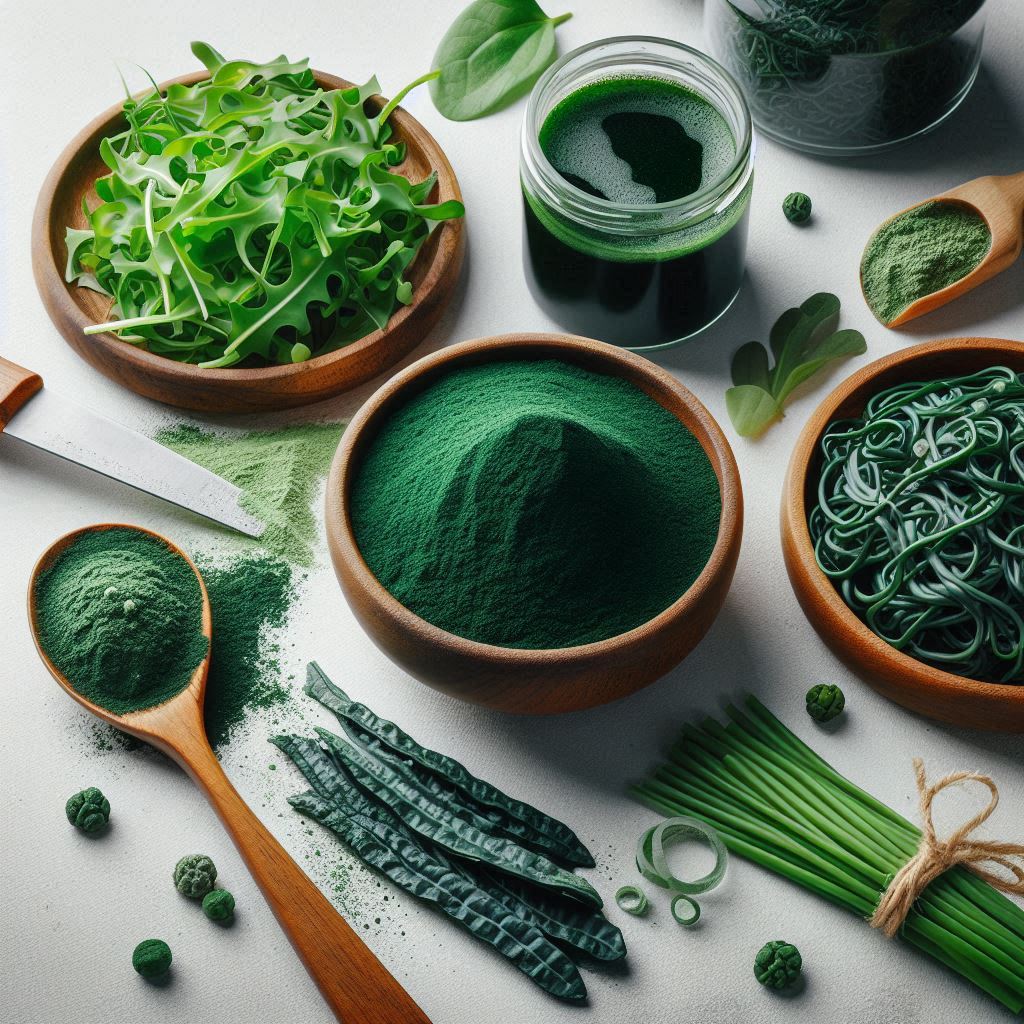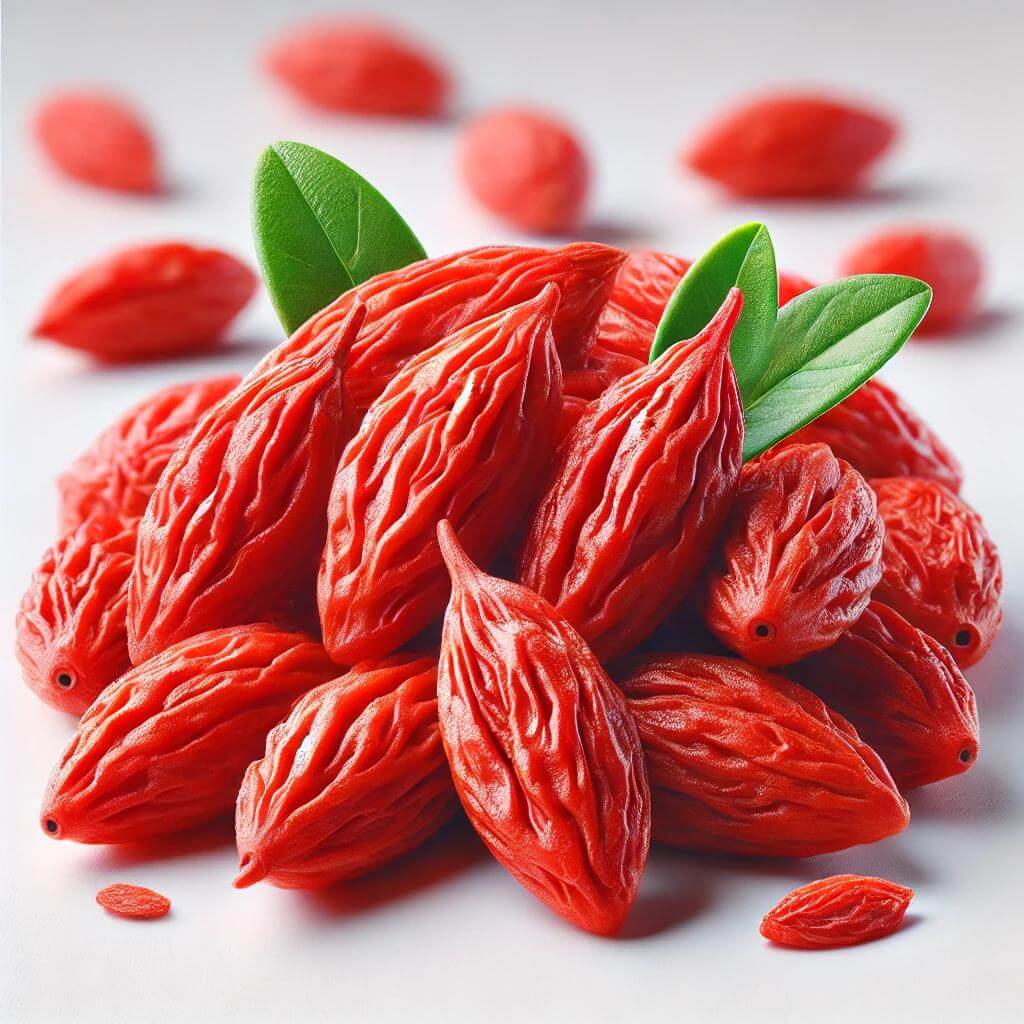Spirulina: The Ultimate Superfood for Boosting Health and Vitality
Spirulina is a blue-green algae that has been consumed for centuries due to its impressive nutritional profile and health benefits. Originally used by ancient civilizations such as the Aztecs, spirulina has gained popularity in modern times as a powerful superfood. It’s often hailed as one of the most nutrient-dense foods on the planet, packed with vitamins, minerals, antioxidants, and protein. Whether you’re looking to boost your immune system, increase energy levels, or support overall well-being, spirulina offers a wide array of benefits. But what exactly makes spirulina so special, and why should you consider adding it to your diet? Let’s dive deep into the health benefits, practical uses, and nutritional profile of spirulina.
Health Benefits of Spirulina: A Comprehensive Overview
Spirulina’s reputation as a superfood is well-deserved, thanks to its rich nutrient content. Below is a detailed examination of the many health benefits it offers:
1. Rich in Protein: A Complete Plant-Based Protein Source
One of the standout features of spirulina is its high protein content. Spirulina is composed of about 60-70% protein by dry weight, making it one of the most protein-dense foods available. Unlike many plant-based proteins, spirulina contains all nine essential amino acids, making it a complete protein source.
- Muscle Repair and Growth: Protein is essential for repairing and building muscles, especially after exercise. Spirulina’s high protein content makes it an excellent addition to post-workout meals or smoothies.
- Vegetarian and Vegan Diets: For those following vegetarian or vegan diets, spirulina offers a valuable source of high-quality protein without the need for animal products.
2. High in Antioxidants: Fighting Oxidative Stress
Spirulina is rich in antioxidants, which play a crucial role in protecting the body from oxidative stress and reducing inflammation. The primary antioxidant in spirulina is phycocyanin, which gives the algae its characteristic blue-green color.
- Cellular Protection: Antioxidants like phycocyanin help neutralize free radicals, preventing cellular damage and reducing the risk of chronic diseases such as cancer, heart disease, and diabetes.
- Anti-Inflammatory Properties: Phycocyanin has been shown to have potent anti-inflammatory effects, which can help alleviate symptoms of inflammatory conditions like arthritis.
3. Supports Immune Function: Strengthening the Body’s Defense System
Spirulina is known to enhance immune function, making it a valuable ally in the fight against infections and illnesses. It contains a variety of nutrients that support the immune system, including vitamins, minerals, and antioxidants.
- Boosting Immune Cells: Studies have shown that spirulina can increase the production of antibodies, white blood cells, and cytokines, which are all crucial components of the immune response.
- Antiviral and Antibacterial Properties: Spirulina has also demonstrated antiviral and antibacterial effects, helping the body fend off pathogens.
4. Detoxification: Aiding the Body’s Natural Cleansing Processes
Spirulina has been shown to support the body’s natural detoxification processes, particularly in removing heavy metals and other toxins.
- Chelating Heavy Metals: Spirulina can bind to heavy metals like arsenic, lead, and mercury, facilitating their removal from the body. This makes it particularly beneficial for individuals exposed to environmental pollutants.
- Supporting Liver Health: Spirulina helps protect the liver from damage and supports its function in detoxifying the body.
5. Supports Cardiovascular Health: Improving Heart Function
Spirulina’s ability to support cardiovascular health is one of its most well-researched benefits. It helps reduce risk factors associated with heart disease, such as high cholesterol and high blood pressure.
- Lowering Cholesterol Levels: Spirulina has been shown to reduce levels of LDL (bad) cholesterol and triglycerides while increasing HDL (good) cholesterol, contributing to better heart health.
- Blood Pressure Regulation: Spirulina’s high content of phycocyanin has been linked to improved blood vessel function, which can help lower blood pressure.
6. Enhances Endurance and Stamina: Supporting Athletic Performance
Athletes and fitness enthusiasts may find spirulina particularly beneficial due to its ability to enhance endurance and stamina.
- Boosting Energy Levels: Spirulina’s rich nutrient profile, including B vitamins and iron, helps increase energy levels and reduce fatigue, making it an excellent pre-workout supplement.
- Reducing Muscle Fatigue: Spirulina’s antioxidant properties help reduce muscle damage and fatigue during intense exercise, allowing for better performance and quicker recovery.
7. Promotes Healthy Skin: Aiding in Skin Care
Spirulina’s high content of vitamins and antioxidants makes it a powerful ingredient for promoting healthy skin.
- Anti-Aging Effects: The antioxidants in spirulina help combat the signs of aging by reducing oxidative stress and improving skin elasticity.
- Hydration and Glow: Spirulina is rich in essential fatty acids, which help keep the skin hydrated and glowing. It also supports the production of collagen, which is vital for maintaining firm, youthful skin.
8. Rich in Essential Vitamins and Minerals: Nutrient Density
Spirulina is an excellent source of essential vitamins and minerals that support overall health and well-being.
- Vitamin B12: Spirulina is one of the few plant-based sources of vitamin B12, which is essential for nerve function and red blood cell production.
- Iron: Spirulina is also rich in iron, making it beneficial for individuals who need to increase their iron intake, such as those with anemia.
- Calcium, Magnesium, and Potassium: These minerals are crucial for maintaining bone health, muscle function, and electrolyte balance.
How to Incorporate Spirulina into Your Daily Diet: Practical Tips and Ideas
Incorporating spirulina into your daily diet is simple and versatile. Here are some practical ways to add this superfood to your meals:
1. Spirulina Smoothies: A Nutrient-Rich Start to Your Day
One of the easiest and most popular ways to consume spirulina is by adding it to smoothies. Its mild flavor pairs well with a variety of fruits and vegetables, making it an excellent addition to your morning routine.
- Tip: Start with a small amount of spirulina powder (about 1 teaspoon) and gradually increase it to 1 tablespoon as you get used to the taste. Combine it with ingredients like bananas, spinach, and almond milk for a delicious and nutrient-dense smoothie.
2. Spirulina Energy Bars: A Convenient Snack
Spirulina can be added to homemade energy bars or protein balls for a convenient and nutritious snack on the go.
- Tip: Mix spirulina powder with oats, nuts, seeds, and dates to create a no-bake energy bar. These bars are perfect for a quick snack before or after workouts.
3. Spirulina in Salads: Adding a Nutrient Boost
Sprinkle spirulina powder over salads or mix it into salad dressings for an easy way to boost the nutrient content of your meals.
- Tip: Combine spirulina with olive oil, lemon juice, and a touch of honey for a simple and nutritious salad dressing.
4. Spirulina in Soups and Stews: Enhancing Savory Dishes
Spirulina can be added to soups, stews, and other savory dishes to enhance their nutritional value. Its flavor blends well with a variety of ingredients, making it a versatile addition to many recipes.
- Tip: Add spirulina powder towards the end of cooking to preserve its nutrient content. It works particularly well in vegetable soups and hearty stews.
5. Spirulina Supplements: Easy and Convenient
For those who prefer a more convenient option, spirulina is available in supplement form, such as tablets or capsules. This allows you to enjoy the benefits of spirulina without having to incorporate it into your meals.
- Tip: Follow the dosage instructions on the supplement packaging and consult with a healthcare provider if you have any concerns.
Potential Disadvantages of Spirulina: Things to Consider
While spirulina offers numerous health benefits, there are a few potential disadvantages to be aware of:
1. Contamination Risks: Sourcing Matters
One of the primary concerns with spirulina is the risk of contamination with toxins, such as microcystins, if it is sourced from contaminated water.
- Tip: Ensure you purchase spirulina from reputable brands that source their product from clean, controlled environments. Look for certifications that guarantee purity and quality.
2. Digestive Issues: Sensitivity in Some Individuals
Some individuals may experience digestive issues, such as bloating, gas, or nausea, when first introducing spirulina into their diet, particularly if consumed in large quantities.
- Tip: Start with a small dose of spirulina and gradually increase it as your body adjusts. Drinking plenty of water can also help mitigate digestive discomfort.
3. Allergic Reactions: Rare but Possible
Although rare, some people may have an allergic reaction to spirulina. Symptoms can include skin rashes, itching, or difficulty breathing.
- Tip: If you have a history of allergies, especially to seafood or seaweed, introduce spirulina into your diet slowly and monitor your body’s response.
4. Interactions with Medications: Consult Your Healthcare Provider
Spirulina may interact with certain medications, particularly those that affect the immune system, such as immunosuppressants.
- Tip: If you are taking any medications or have a chronic health condition, consult with your healthcare provider before adding spirulina to your diet. This will help you avoid any potential adverse interactions.
5. High Iodine Content: A Concern for Thyroid Health
Spirulina contains iodine, which is essential for thyroid function. However, excessive intake of iodine can lead to thyroid dysfunction, particularly in individuals with pre-existing thyroid conditions.
- Tip: Monitor your iodine intake if you consume spirulina regularly, especially if you have a thyroid disorder. It’s important to balance your iodine intake from all sources to maintain healthy thyroid function.
Nutritional Values of Spirulina: A Detailed Table
Here is a comprehensive breakdown of the nutritional values of spirulina per 100 grams:
| Nutrient | Amount per 100g | % Daily Value |
|---|---|---|
| Calories | 290 kcal | 15% |
| Total Fat | 7.72 g | 12% |
| – Saturated Fat | 2.65 g | 13% |
| – Polyunsaturated Fat | 1.8 g | – |
| – Monounsaturated Fat | 3.4 g | – |
| Cholesterol | 0 mg | 0% |
| Sodium | 1,048 mg | 46% |
| Total Carbohydrate | 23.9 g | 8% |
| – Dietary Fiber | 3.6 g | 14% |
| – Sugars | 3.1 g | – |
| Protein | 57.47 g | 115% |
| Vitamins and Minerals | ||
| – Calcium | 120 mg | 12% |
| – Iron | 28.5 mg | 158% |
| – Magnesium | 195 mg | 46% |
| – Phosphorus | 118 mg | 17% |
| – Potassium | 1360 mg | 39% |
| – Zinc | 2.0 mg | 13% |
| – Vitamin C | 10.0 mg | 11% |
| – Vitamin B1 (Thiamin) | 2.38 mg | 198% |
| – Vitamin B2 (Riboflavin) | 3.67 mg | 214% |
| – Vitamin B3 (Niacin) | 12.82 mg | 64% |
| – Vitamin B6 | 0.56 mg | 28% |
| – Folate | 94 µg | 24% |
| – Vitamin A | 29,800 IU | 596% |
Summary: The Power of Spirulina in a Balanced Diet
Spirulina is undeniably a superfood, offering a plethora of health benefits due to its exceptional nutrient density. With its high protein content, rich antioxidant profile, and support for immune function, spirulina stands out as a valuable addition to any diet. It supports cardiovascular health, aids in detoxification, and enhances endurance, making it a versatile supplement for various health goals.
Incorporating spirulina into your daily diet can be achieved through simple and creative methods. Whether you choose to blend it into smoothies, mix it into energy bars, add it to soups, or take it as a supplement, spirulina offers a convenient way to boost your nutrient intake. However, it’s important to be aware of potential disadvantages, such as contamination risks, digestive issues, and interactions with medications. Ensuring the quality of the spirulina you consume and moderating your intake can help you maximize its benefits while minimizing potential risks.
In conclusion, spirulina is a powerful superfood that provides a wide range of health benefits, from improving protein intake and supporting heart health to enhancing athletic performance and detoxifying the body. Its versatility and nutrient density make it an excellent choice for anyone looking to improve their overall well-being. By incorporating spirulina into your diet thoughtfully and responsibly, you can harness its full potential and enjoy its numerous advantages for a healthier, more balanced lifestyle.
*Disclaimer: The information provided in this article is for educational and informational purposes only and should not be construed as health advice. The content is solely the personal opinion of the author and is not intended to be a substitute for professional medical advice, diagnosis, or treatment. Always seek the advice of your physician or other qualified health provider with any questions you may have regarding a medical condition or before starting any new diet or treatment. Read more




1 comment